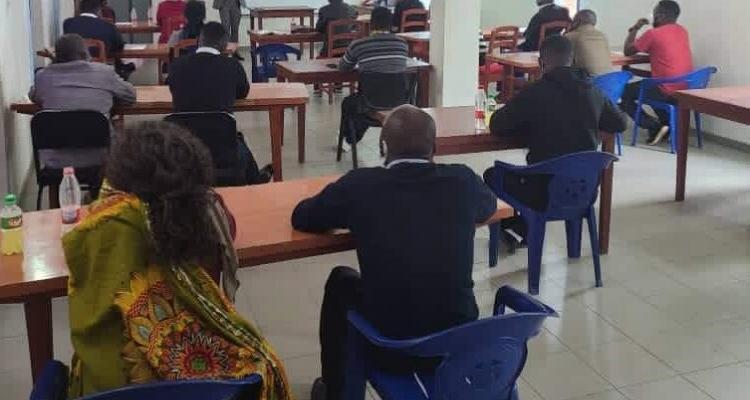
Members of community of Sant’ Egidio, a catholic layman association in the country has been trained on the recent Malawi Supreme Court of Appeal’s judgment on the death penalty.
According to one of the organizers of the training lawyer Alexious Kamangila who volunteers for the community of Sant’ Egidio, there is a knowledge gap on the recent pronouncement of the Malawi Supreme Court of Appeal on the death penalty hence the training.
On 28th April 2021, in a decision of 8-1, the Supreme Court declared that the death penalty is unconstitutional and that every section of the law that provides for the punishment of death, should be read as to mean life imprisonment.
In that landmark case, the Court indicated that the right to life is the mother of all rights, and so that the penal code which is subjective to a constitutional test, cannot abrogate the right to life which is safeguarded under Section 16.
Following the ruling, the Community of Sant Egidio invited all coordinators and those that are responsible to lead the Community’s work in prison, to a full day training to unpack the Khoviwa’s decision on death penalty.
Kamangila said the aim of the training was to train trainers, who will conduct trainings in different districts of their abode which he said is an essential aspect of awareness campaigns, which will be conducted at a more targeted audience, while the ruling remains alien.
He added that the Sant Egidio believes that a dialogue approach to those that oppose the decision, might be handy as everyone can change and he emphasized that the unconstitutionality of the death penalty is clearly explained by this judgment.
The renowned lawyer added that no one can dispute that the right to life is the mother of all rights and further said, there is no debate that the right to life is non-derogable and that the punishment of death is not provided for in the Constitution.
He continued to say the ‘controversial’ aims to define arbitrary deprivation which over the years was being used to justify the constitutionality of the death penalty, before the Khoviwa ruling.
Kamangila, who has been an outspoken advocate for the abolition of the death penalty for more than a decade, emphasized that the question of per incurium or obiter dictum does not arise.
“The issue before the Court was the death sentence of Khoviwa, and that being imposed without being given a chance to outline mitigating factors, was unconstitutional as per Kafantayeni decision and a violation of the right to life.
“The right to life is provided for under the constitution and so to argue that the constitutionality of the death penalty was not before the Court, is absolute lies upon stilts. Further, the submissions of the Applicant, challenged the Constitutionality of the death penalty, in detail,” said Kamangila.
Taking her turn, Chikondi Chijozi of Southern African Litigation Centre (SALC) equipped the trainees on advocacy which he said requires that the advocate should have a message, a purpose and a strategy of getting to the goal.
Senior Legal Aid Advocate Humphrey Panyanja, after giving the status of death penalty in Malawi and the steps being taken to effect the judgment, narrated that before giving a through thought to the issue of the death penalty, he was in support.
“It is was as simple as a conviction that the law provides for it for a reason hence it should remain there to serve the intended purpose. It was after attending a training, just like you, that I developed interest to investigate the question of the death penalty in Malawi and well, I converted to advocate against death penalty,” Panyanja told the trainees.
He then told the group never to be ashamed or frustrated for defending life, claiming it is the greatest service to humanity and that as a legal aid lawyer, he have seen a lot and death penalty has never been just and no circumstance makes it just.
Through Cities for Life on every 30th November, Community of Saint’ Egidio has revealed the evils of death penalty for years in Malawi and in the past, the group engaged chiefs to denounce death penalty, in an effort to change the mentality of the common Malawian.
It is believed that trainings of this kind, can provide an opportunity to bring the conversation of the Khoviwa decision, to the common Malawian.














